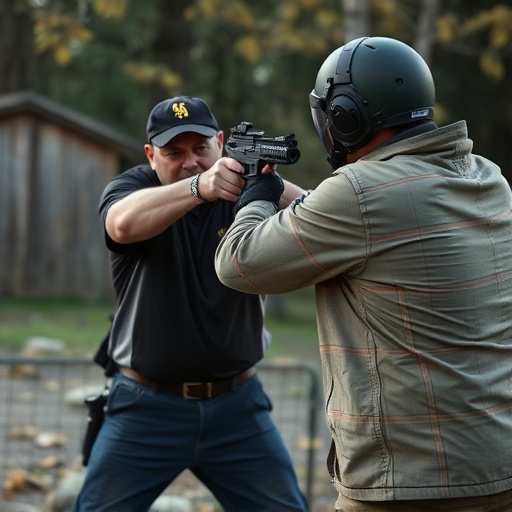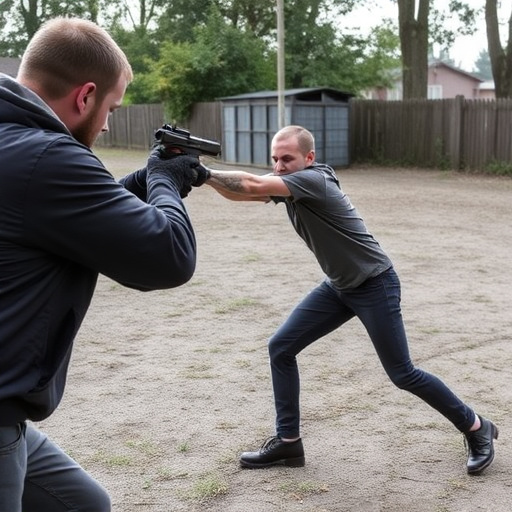Before purchasing a police-grade stun gun, understand your state's laws, as U.S. regulations vary widely, impacting civilian ownership and use. Research is crucial to ensure legal compliance and safe deployment of these powerful self-defense tools, known as Police Grade Stun Gun Options.
In today’s world, civilian stun gun ownership is a growing trend for personal safety. However, navigating state laws on civilian taser possession can be complex. This comprehensive guide explores the legal requirements and restrictions surrounding police-grade stun guns, as well as non-lethal alternatives. Understanding your rights and responsibilities is crucial when considering stun gun options. Dive into this article to discover the varying regulations and make informed decisions regarding police grade stun gun choices.
- Understanding State Laws on Civilian Stun Gun Ownership
- Police Grade Tasers: Legal Requirements & Restrictions
- Exploring Options: Non-Lethal Civilian Stun Guns
Understanding State Laws on Civilian Stun Gun Ownership

Understanding state laws regarding civilian stun gun ownership is crucial before considering the purchase of a police-grade stun gun. Each state has its own set of regulations, ranging from strict licensing requirements to permissive open carry policies. Potential owners must familiarize themselves with local laws to ensure compliance and avoid legal issues.
When exploring police-grade stun gun options, it’s essential to consider the legal framework surrounding their civilian ownership. These powerful tools, designed for law enforcement use, may have restrictions on who can acquire and possess them. Understanding these regulations is the first step in making an informed decision and ensuring a safe, legal experience with stun guns.
Police Grade Tasers: Legal Requirements & Restrictions

Police-grade stun guns, or Tasers, are designed for law enforcement agencies and come with stringent legal requirements and restrictions. These powerful tools are considered less lethal alternatives to firearms and are used for crowd control, self-defense by officers, and to subdue resistant individuals. States have varying regulations regarding their ownership and use, but typically, only certified law enforcement personnel or authorized individuals within these departments can legally possess and deploy them.
The legal landscape surrounding civilian possession of police-grade stun guns is complex. Some states allow limited access for private citizens under strict conditions, often involving background checks, training, and permits. However, the majority of states restrict or prohibit civilian ownership of Tasers due to concerns over potential misuse and the risk they pose to public safety. When considering Police Grade Stun Gun Options, it’s crucial to understand these legal boundaries and prioritize the responsible use of any such device for self-defense or protection.
Exploring Options: Non-Lethal Civilian Stun Guns

For civilians interested in non-lethal self-defense options, exploring the realm of police-grade stun guns can be an appealing choice. These devices are designed to incapacitate an assailant temporarily without causing permanent harm, making them a popular alternative to traditional firearms. Many states have recognized the benefits and implemented laws allowing responsible citizens to own stun guns for personal protection.
When considering a purchase, it’s crucial to understand that not all stun guns are created equal. High-quality, police-grade options offer superior performance and safety features. Look for models with adjustable voltage settings, durable construction, and built-in safety mechanisms to ensure their effectiveness and prevent accidental discharges. With careful research and adherence to local regulations, civilians can gain access to these powerful non-lethal tools, enhancing their ability to defend themselves in various situations.
When considering civilian taser ownership, understanding state laws is paramount. Each jurisdiction has its own set of requirements and restrictions, particularly when it comes to police-grade stun guns. While non-lethal civilian stun guns offer a range of legal options, the path to ownership can vary widely. By exploring these options and staying informed about local regulations, individuals can make responsible decisions regarding self-defense while adhering to their state’s legal framework.
